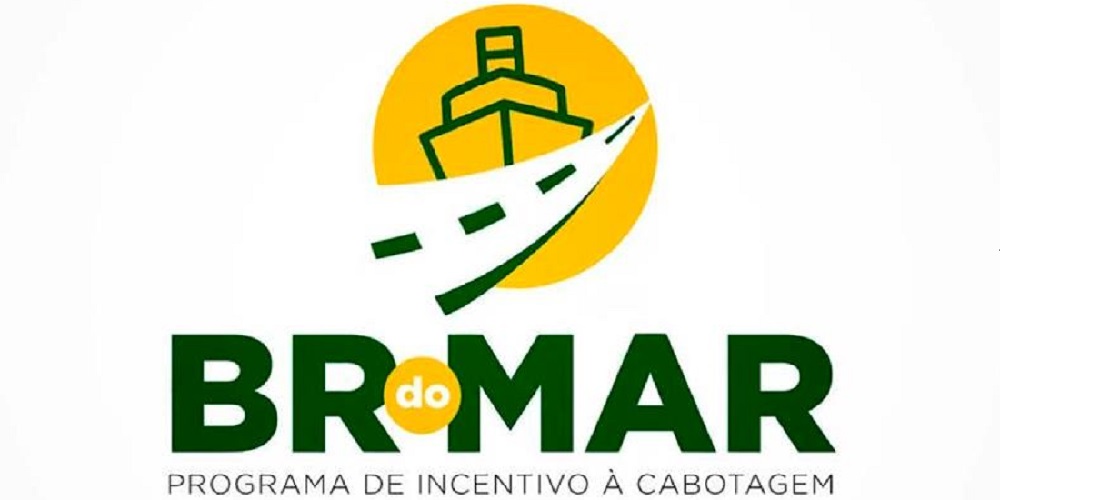
‘BR do Mar:’ Brazilian port sector awaits regulation 6 months after law ratification
Oct, 04, 2022 Posted by Gabriel MalheirosWeek 202240
Half a year after the ratification of Federal Law 14,301/22, which created the Cabotage Transport Stimulus Program, known as BR do Mar, the Brazilian port sector is still awaiting the regulation of the program. So far, according to market associations, gains have been minimal. Currently, the Federal Government is still working on defining the details of the new rules.
The BR do Mar was discussed on Bill 4.199/20, approved by the Lower Chamber of the Congress in December last year. Excerpts vetoed by the President of the Republic, Jair Bolsonaro, were reinserted and enacted on March 25.
The Federal Government had vetoed some aspects of the program, including the one that changed the rate of the AFRMM, a fee paid for each freight operation carried out in Brazil to support a fund for the purchase and maintenance of ships. In addition, the President had also vetoed the re-creation of the Tax Regime to Incentivize the Modernization and Expansion of the Port Structure (Reporto).
According to the president of the Brazilian Association of Customs Terminals and Premises (Abtra), Bayard Umbuzeiro Filho, the entity awaits the issuance of a regulatory decree. “So far, we haven’t seen any significant throughput increase stemming from the project approval.”
According to Umbuzeiro, the most significant advance was the prospect of using Reporto, which had its validity extended to December of the next year with the new law. The benefit suspends the collection of federal taxes IPI, PIS, Cofins, and Import Tax on purchasing machinery, equipment, and other goods for port terminals.
“However, only businesses that have filed a lawsuit can take advantage of Reporto in 2022. The project is outlined in the government’s proposed budget, at least for 2023,” declared the Abtra president.
The president of the Association of Private Port Terminals (ATP), Murillo Barbosa, seconds that Reporto was the main gain for the port sector. The topic has been the subject of intense negotiations with the Federal Government and the Brazilian Congress since last year.
“We overturned the veto (of President Bolsonaro), and (Reporto) does not need further regulation. However, due to the Reporto fee tax waiver not being included in the 2022 Budget, the Revenue Service [Receita Federal] is not approving requests to apply the Reporto fee. Therefore, we only obtain this right when a business files a lawsuit. This will not be an issue in 2023,” highlighted the ATP president.
Status
According to the Ministry of Infrastructure, at the end of March, with the enactment of Law 14,301/2022, the Ministry began addressing the technicalities necessary for regulating the BR do Mar program with all parties involved. “Legal experts are analyzing the proposed text’s technical note and explanatory memo in preparation for sending them to the chief of staff of the Republic’s presidency.”
However, according to the Ministry, the law includes provisions that do not depend on further Federal regulation to be implemented; that is, they are self-applicable. Among them are the Empresa Brasileira de Investimento (Brazilian Investment Company in a free translation) and bareboat chartering of a vessel.
Ordinance 976/2022 has also been published, which is part of the federal regulatory process, clearing Brazilian Navigation (EBN) and Conditioned Navigation (EBN-CON) companies to apply to the Ministry of Infrastructure to be included in the BR do Mar program.
Expectations
According to the Ministry of Infrastructure, with the new rules for cabotage, it will be possible to expand the capacity of the maritime fleet dedicated to coastal navigation by 40% in the next three years, excluding those operating in oil and derivatives. In addition, the BR do Mar provides that companies will be able, after a transition period, to rent bareboat vessels (changing the ship’s foreign flag to Brazilian) without having their Brazilian ships. Full release, however, will only take four years.
Source: A Tribuna
To read the full original article, please go to: https://www.atribuna.com.br/noticias/portomar/seis-meses-apos-criacao-de-lei-setor-portuario-aguarda-regulamentacao-do-br-do-mar
-
Meat
Apr, 23, 2019
0
African swine fever in China likely to cut soy exports and lift meat sales
-
Meat
Jan, 05, 2023
0
Beef: Brazil exports 152,798 thousand tonnes in December
-
Ports and Terminals
Mar, 25, 2024
0
Port of Santos: Warehouse berths being dredged
-
Ports and Terminals
Nov, 08, 2023
0
Disqualified Companies File Request to Suspend Port of Itajaí Auction


